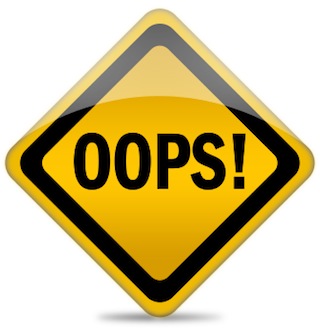 I’ve probably talked to hundreds of companies thinking about or actively buying paid search software over the years. Yet, people continue to make the same mistakes over and over when buying paid search software.
I’ve probably talked to hundreds of companies thinking about or actively buying paid search software over the years. Yet, people continue to make the same mistakes over and over when buying paid search software.
Here are the top five mistakes people make when buying paid search software and how you can avoid them.
1. Expecting The Software to Be a Paid Search Manager
Some people were surprised to learn that they actually had to use the paid search software they bought. If you’re looking to “set it and forget it” you’re guaranteed to be disappointed.
Paid search software doesn’t substitute for a person actively managing a campaign. It can’t strategize and, no matter how sophisticated, it doesn’t replace human analysis. If you’re a small spend company considering buying paid search software vs. hiring a freelancer or agency, get the freelancer or agency.
It does enhance your teams and efforts, however. Repetitive tasks can be an incredible waste of time and talent.
Text ad testing, account monitoring and alerting, splitting out ad groups – there are a host of tedious tasks that you’re probably overpaying your team to do. Let smart people focus on hard problems and use technology to make them better.
One caveat is that sometimes paid search software can make your teams efficient enough that you can put off an additional hire. Put another way, you can scale, either your spend or the number of clients you serve, without having to throw more people at the problem.
2. Buying “Bid Management Software”
The people who started a conversation with “are you a bid management tool?” were inevitably the worst prospects.
Bid management software is an old term from first-generation tools launched in the 1990s. This is like buying a car solely on whether it has cruise control. Focusing on the suite of possible tools entirely through the lens of bidding ignores the whole range of activities software can help with: keywords, text ads, account structure, negatives, match types, etc.
It also places an undue emphasis on one lever of control in managing paid search. Yes, bid management is an obvious area where software can make you more efficient. But, it isn’t going to magically make your campaigns profitable if you have terrible ads, bad negatives, and crappy keywords.
3. Buying by Checklist (Or, The RFP Problem)
They say in B2B marketing that if you’re brought in at the request for proposal (RFP) stage you’ve already lost the sale. The same is true for buyers: if you’re evaluating by checklist, you’re already wasting time.
We sometimes got long checklists of all possible features to respond to in writing or during the demo. It was rarely a productive process.
Why? You’re probably going to use 5-10 features of the software 90 percent of the time. Going through 50 different questions doesn’t get at the heart of what matters to your business and your team. It’s usually a sign that a buyer doesn’t know what they want and is being risk averse.
Instead, spend a week documenting how you spend your time for a week before you start shopping. Are you trolling through search queries for negatives? Splitting out ad groups all of the time? Spending all of your time analyzing data, but not acting?
Focus your research on the areas you’re wasting time on today combined with the unique things a vendor can do that you could never do without software. Please put the checklist away.
4. Champagne Taste, Beer Budget
PPC software ranges in price from $500 per month to 12 percent of spend. Sometimes implementation fees and support are included. Not every vendor includes all of the features you see in a demo in the standard price.
It’s easy to waste time in the buying process if you don’t put a budget boundary around your search. Sure, you may want the enterprise tool, but if you’re spending $15,000 a month, you’d never be able to amortize the cost to make the purchase worthwhile.
If you’re below $50,000 a month and you know that you need software (not just more PPC help), focus exclusively on the lower end tools – those that cost $500 – $2,000 per month, depending on your range. It’s about understanding your needs vs. your wants. When you look back in 6 months, how are you going to evaluate your purchase? Make your investment appropriately.
5. Not Understanding The Setup Process
Every tool requires some sort of connection to your paid search account and website. Whether it’s API connections, redirects or tagging, you’re going to have to give the tool a way to connect your account to the tool you want to use in order for it to get data and function.
The time and effort it takes to do this varies by tool and by customer. It can be 2 days to 2 months, depending on what is being asked, who has to do the work and how much else is on his or her plate.
Ask questions about implementation and make sure you clearly understand what you’re signing up for once you agree to a contract. The first thing any support team is going to do is setup the tool and ask you to implement some changes on your side. This is a necessary step before you can use the tool, so you want to go into the process with realistic expectations of the effort and timeline.
I’d love to hear your questions about buying a paid search tool. What do you want to know?
 I’ve probably talked to hundreds of companies thinking about or actively buying
I’ve probably talked to hundreds of companies thinking about or actively buying